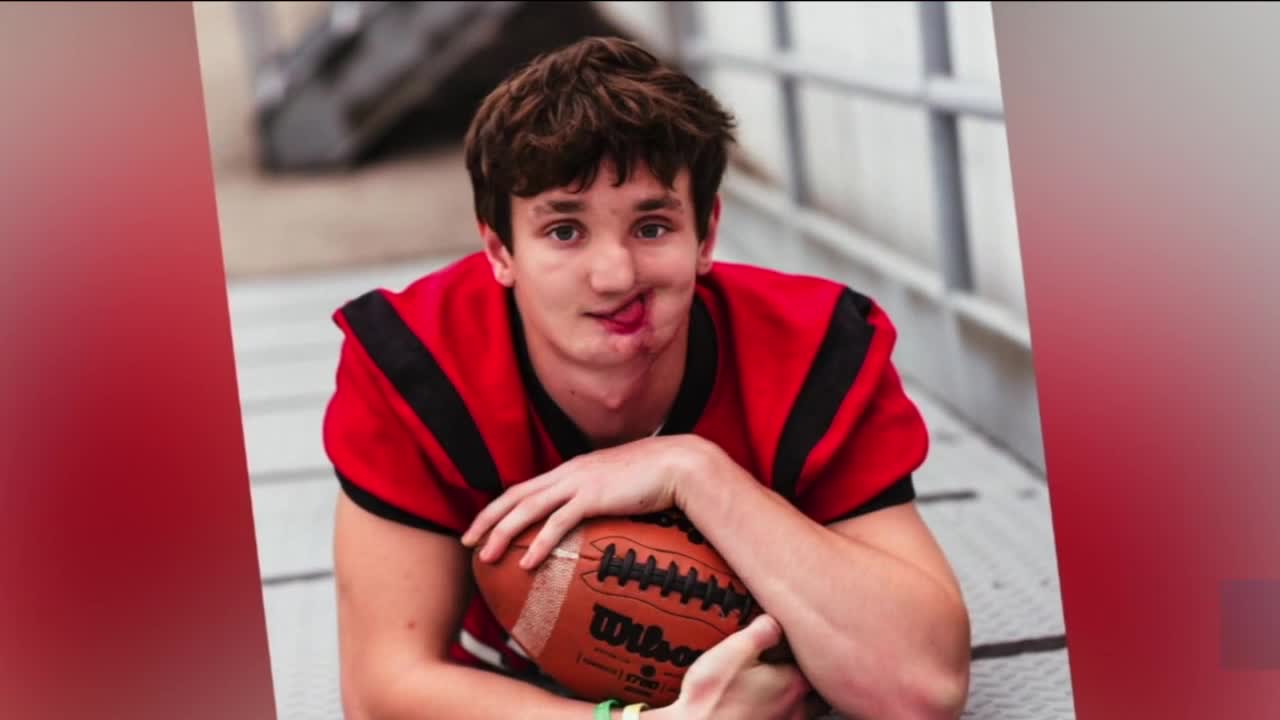Starting Saturday July 16, anyone experiencing or witnessing a mental health crisis will be able to call or text 988 for free and confidential emotional support from trained counselors with The National Suicide Prevention Lifeline.
Carson Molle, 19, survived his own suicide attempt and has been advocating for more mental health resources like this.
“I think it’s probably going to help save a lot of lives,” he said.
Molle, who’s going into his second year at UW Oshkosh, shot himself when he was 14 years old. He’s gone through a lot of tough surgeries at Children’s Wisconsin and still has more ahead. But he’s also never been more thankful for life. In the five years since he thought he wanted to die, he’s become a bodybuilder, coach, public speaker and mental health advocate.
“A big part of what led to my decision to try and take my own life was because I felt a lot of self-induced pressure and expectations in the sports I played, and I really like to teach kids how to manage that pressure,” he said.
WATCH:
Molle has even met with U.S. lawmakers to share the importance of making sure more young people have access to counseling. That's why 988 - three numbers for anyone to call or text anytime and connect directly with a counselor - means so much to him.
Molle, who lives near Green Bay, is open about how much it helps him to have regular virtual meetings and phone calls with his therapist, who works a couple hours away at Children’s Wisconsin.
“Being able to share what you’re thinking and feeling with someone neutral who’s there just to listen, is really therapeutic,” said Molle. “Someone who’s a professional and can tell you a little bit about what’s going on in your brain and body. Why these feelings are happening. They know ways to help you. You learn these ways to help yourself. All these coping mechanisms.”
Actively healing and sharing that journey is what Molle says is the best way to fight the stigma that too often still surrounds mental health challenges and treatment.
“Some people still view it as a very negative thing, and they think you should not talk about it,” he said. “We should be telling everyone here’s a lifeline for you to call. Here’s a lifeline for a family member to call. It will get people talking and thinking.”




